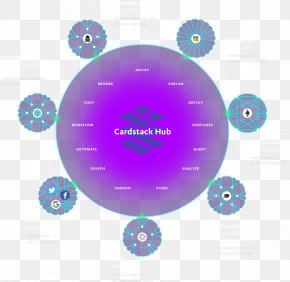Sortition Mac OS
After a number of incarnations on Earth and unhappy with the opportunities nations offer souls to grow, our hero, Kanli (you) is offered a chance to. He will try, over a number of simulations, to build a state, survive the hardships of time whilst helping as many souls as possible evolve beyond the taints. Next Generation Portal – 14UM.NET Hi-tech, android, iOS, Mac OS, linux, windows, games, security.
1 In Finder.app, as per the default sort order, the files and folders whose name begin with an underscore character appear before the hidden files, i.e. Ones whose name being with a dot. Sortition is most commonly used to form citizens' assemblies. As an example, Vancouver council initiated a citizens' assembly that met in 2014–15 in order to assist in city planning. Sortition is commonly used in selecting juries in Anglo-Saxon legal systems and in small groups (e.g., picking a school class monitor by drawing straws).
- < Previous
- Next >
Home > College of Arts & Sciences > Government > Government Faculty Publications > 30
Title
Authors
Document Type
Peer-Reviewed Article
Publication Date
2011
Abstract
It has been over 40 years since Connecticut amended its Constitution to ensure citizens a right to a free public education. Despite the constitutionally prescribed right, dramatic inequities in educational conditions continued to characterize the state's K-12 educational system, especially between suburban/rural white and urban minority school districts. In the 1970s plaintiffs challenged the prevailing mechanism for allocating education funds with a host of court cases that tackled the thorny question of how much financial responsibility the state should assume to equalize the spending disparities between school districts. Prodded by court decisions, many formulas and approaches have been proposed by the Connecticut General Assembly in response to the various legal challenges yet the state has never fully funded the cost sharing formula nor lived up to the 50-50 cost sharing arrangement envisaged by some policymakers. The situation remains at an impasse with the latest court action, CCJEF v. Rell (2005), to be resolved no sooner than 2014 by most accounts. Our aim here is to offer an analysis of the decision-making environment that explains the current impasse. We contend that by applying the dual-error framework popular in other social policy settings, it is possible to understand the competing views and beliefs of those groups arrayed in opposition. We claim that the individual and political understanding and policy responses are prone to cognitive heuristics in the manner popularized by Sunstein, Schadke and Kahneman, and Kuran and Sunstein (Kuran & Sunstein, 1999; Sunstein C. , Cognition and Cost-Benefit Analysis, 2000; Schkade & Kahneman, 1998). This analytical approach entails a recognition that many policy makers fail to make decisions via the normative model of rational decision-making but rather rely subjectively on emotion, intuitions, biases, character traits, and social and cultural norms in a manner that diverges systematically from the rational model. We argue that differing subjective appraisals of the role of individual agency in the observed achievement gap is at the core of the debate. There are, of course, other inputs into the educational process. But it is this perception of agency that heavily influences the general population's political choices. The existing institutional framework appears to have cemented this worldview in a situation that has little chance of a meaningful resolution. We note the perplexing conundrum in which Connecticut finds itself and conclude that the problem is a social dilemma in which the parties involved are individually powerless to resolve. Sortition mechanisms - allocation by lottery - have been known to effectively resolve social dilemmas in other domains. We examine the possibility of relying on lots to resolve the allocation of educational monies.
DOI
10.5296/ije.v3i2.1138
Recommended Citation
Rodriguez, A. E. & DeNardis, L. (2011). Can allocation by sortition resolve the Connecticut education-financing impasse? International Journal of Education, 3(2), 1-28. doi: 10.5296/ije.v3i2.1138
Creative Commons License
This work is licensed under a Creative Commons Attribution-Noncommercial-No Derivative Works 4.0 License.

Included in
Sortition Mac Os Sierra
Economic Policy Commons, Education Law Commons, Education Policy Commons, State and Local Government Law Commons
COinSTo view the content in your browser, please download Adobe Reader or, alternately,
you may Download the file to your hard drive.
Sortition Mac Os Catalina
NOTE: The latest versions of Adobe Reader do not support viewing PDF files within Firefox on Mac OS and if you are using a modern (Intel) Mac, there is no official plugin for viewing PDF files within the browser window.